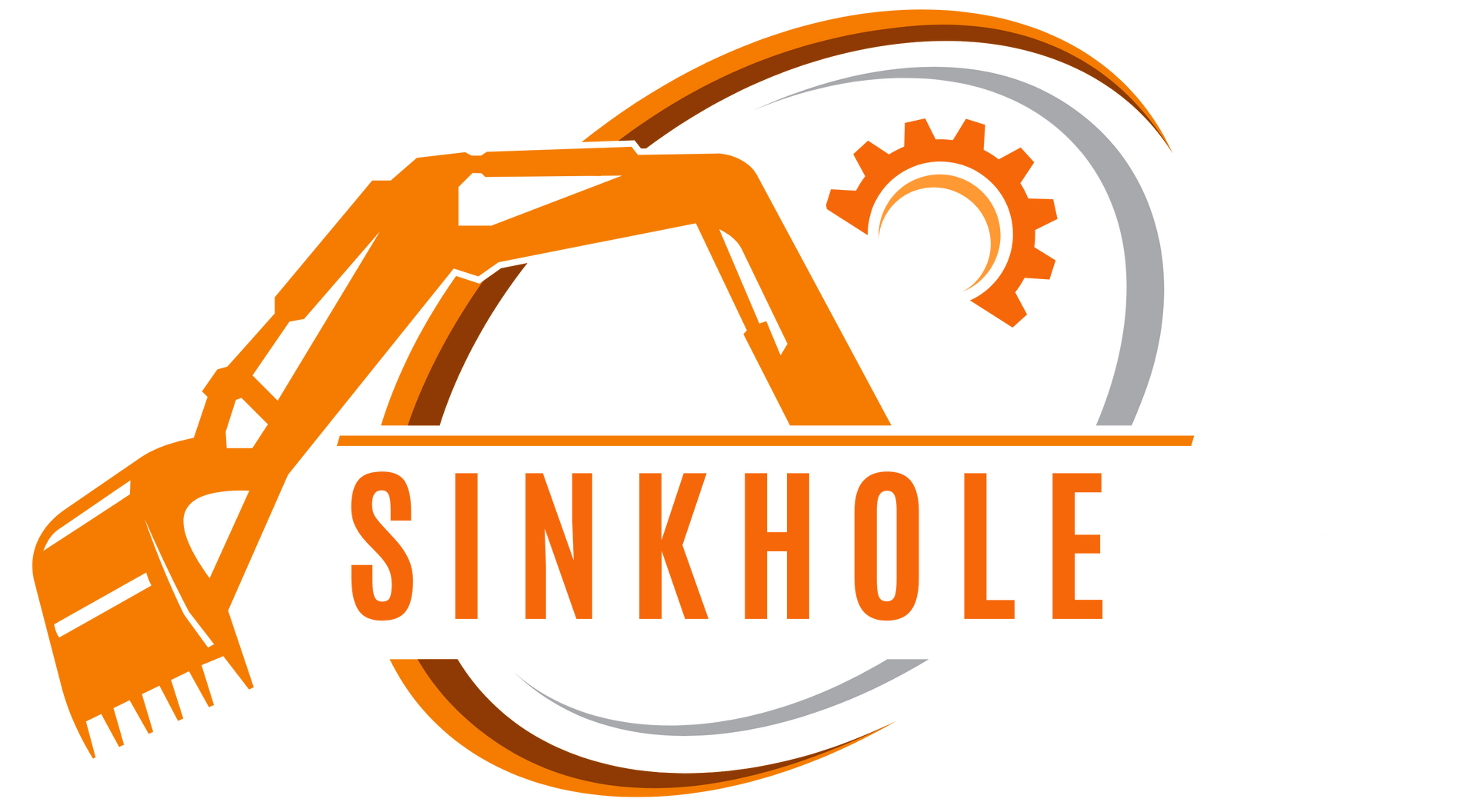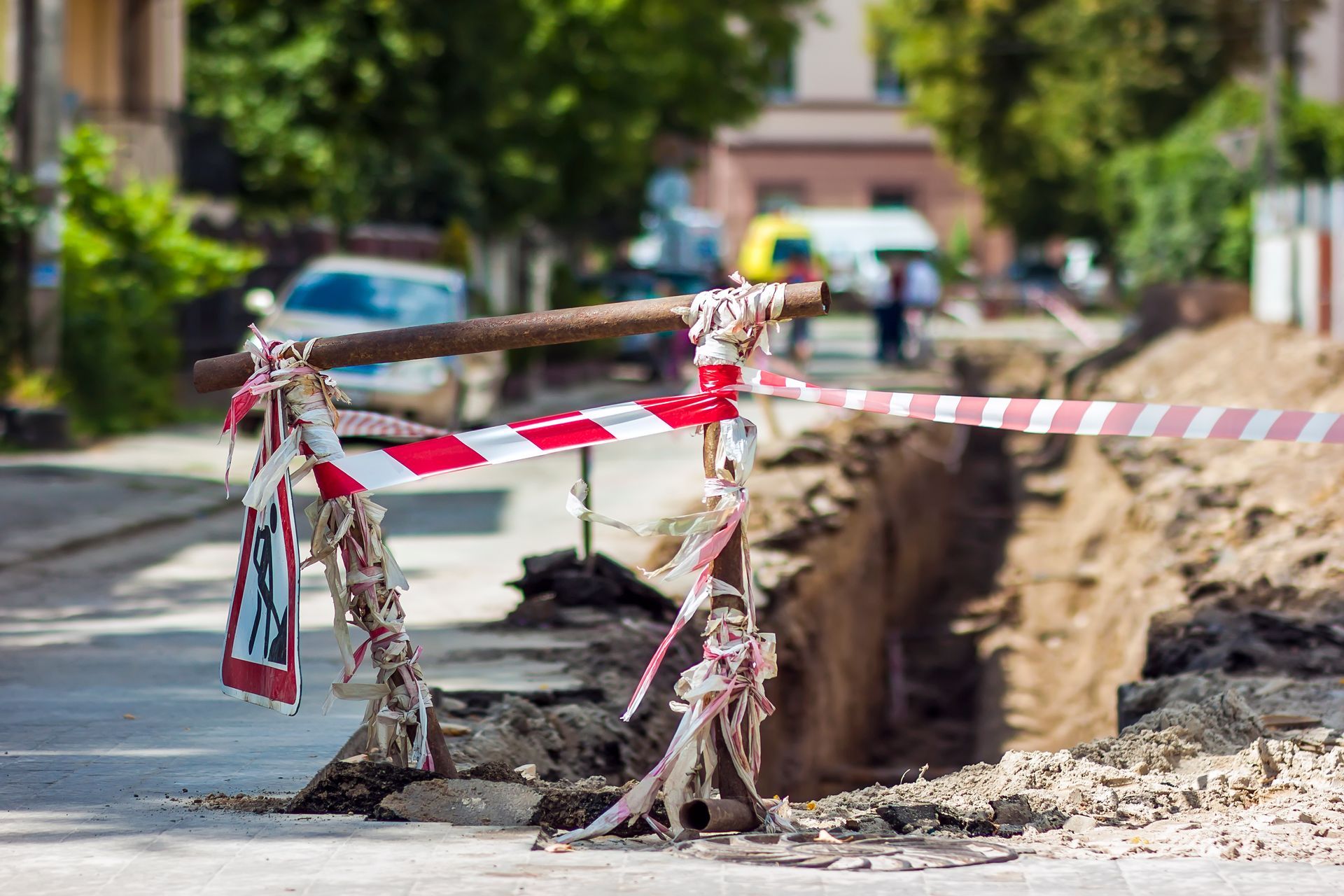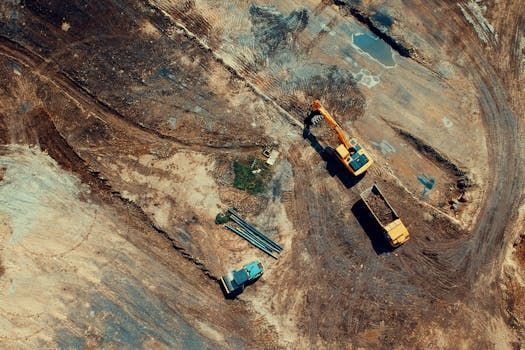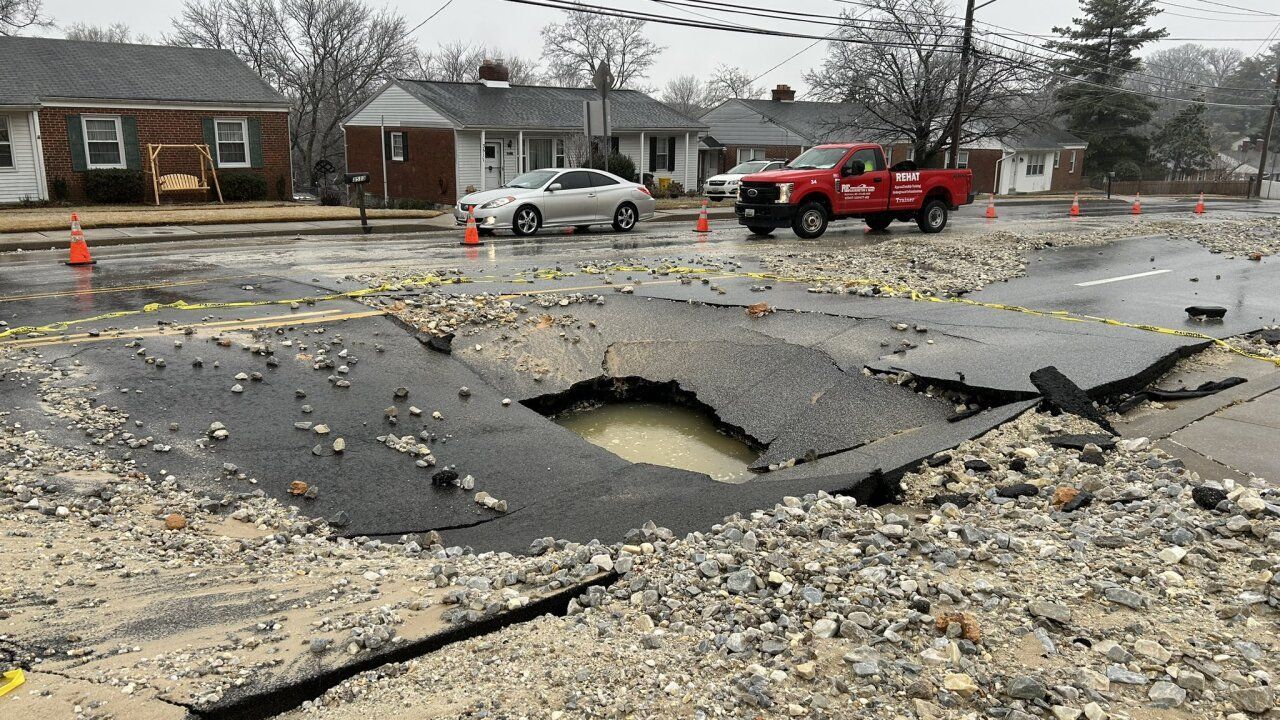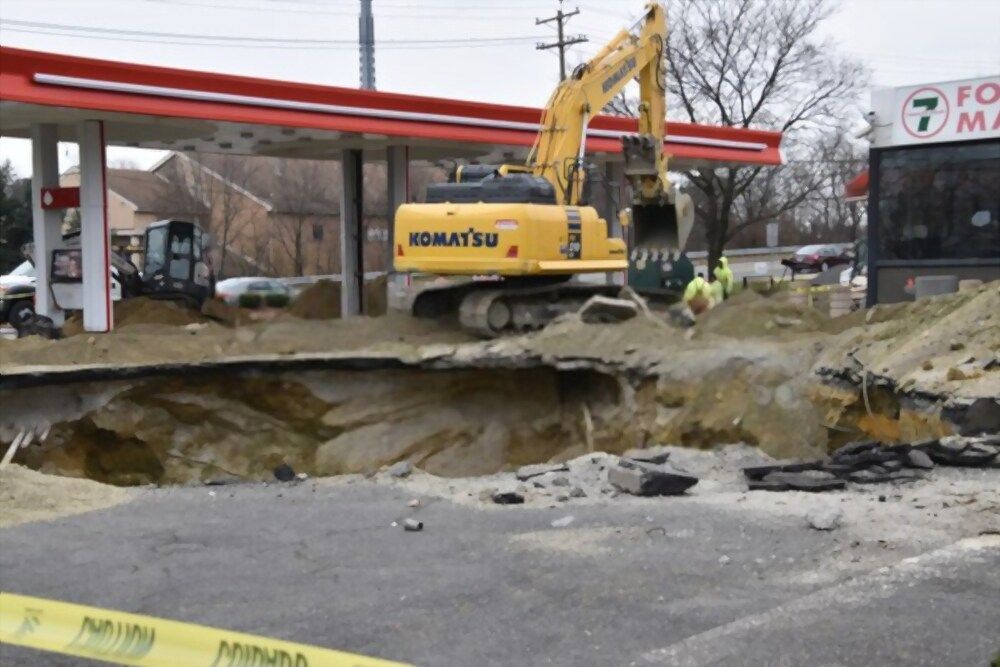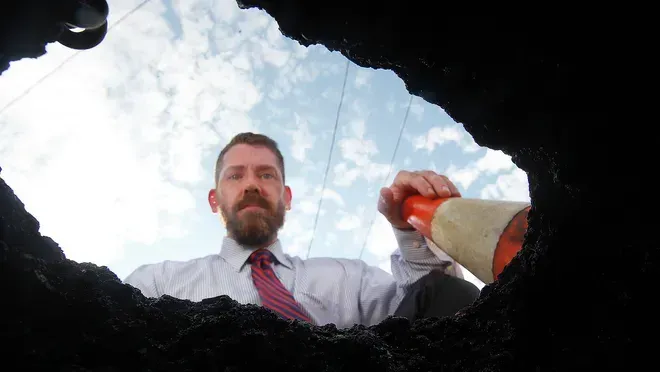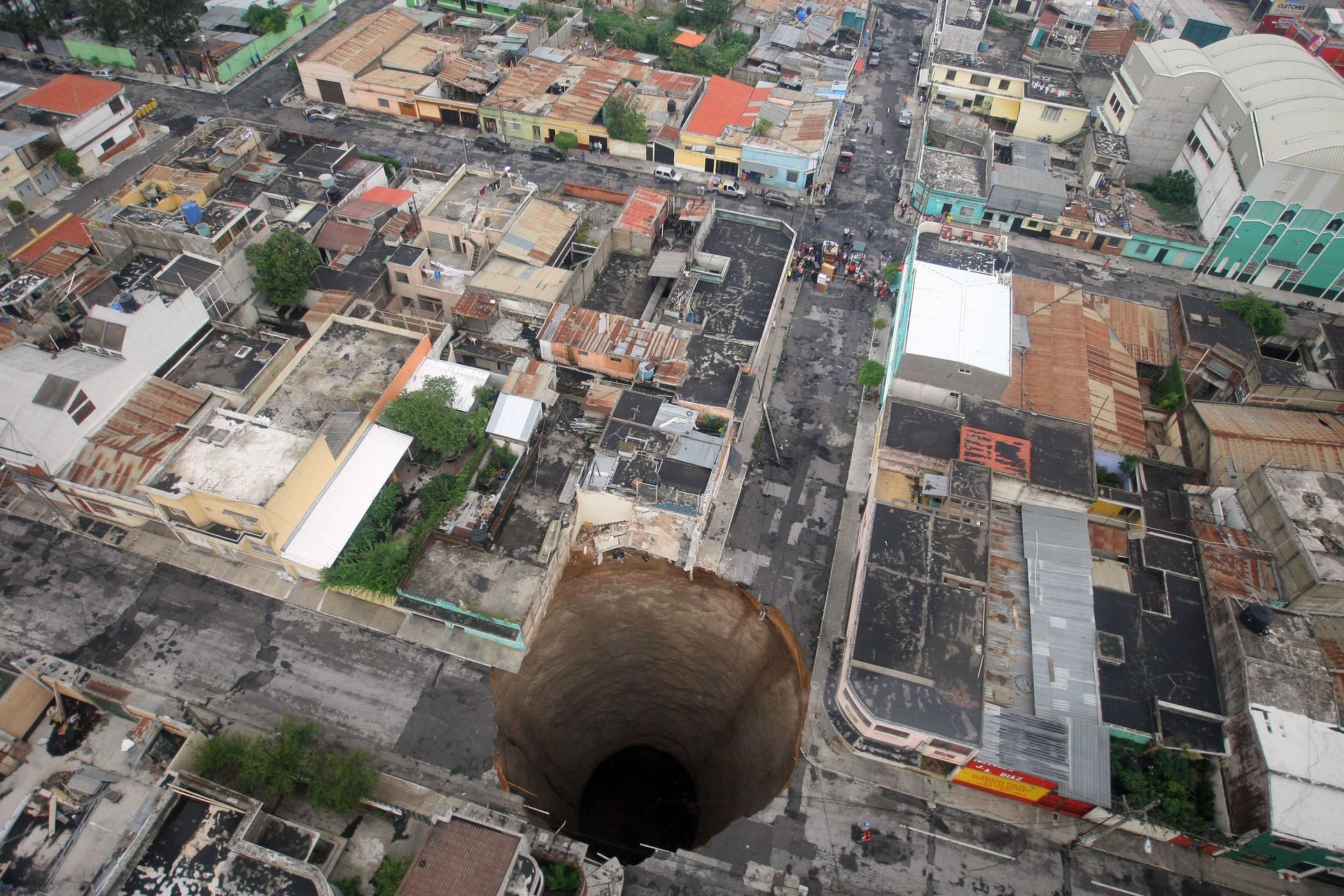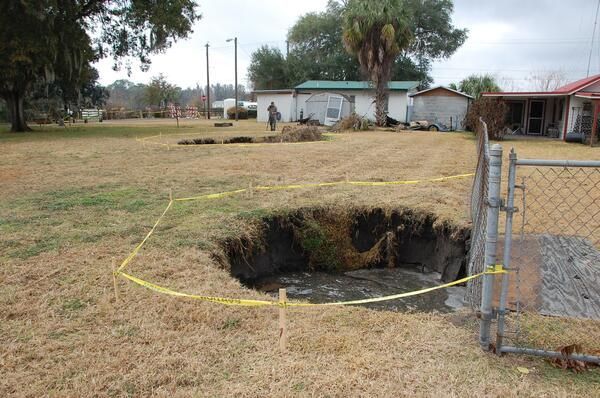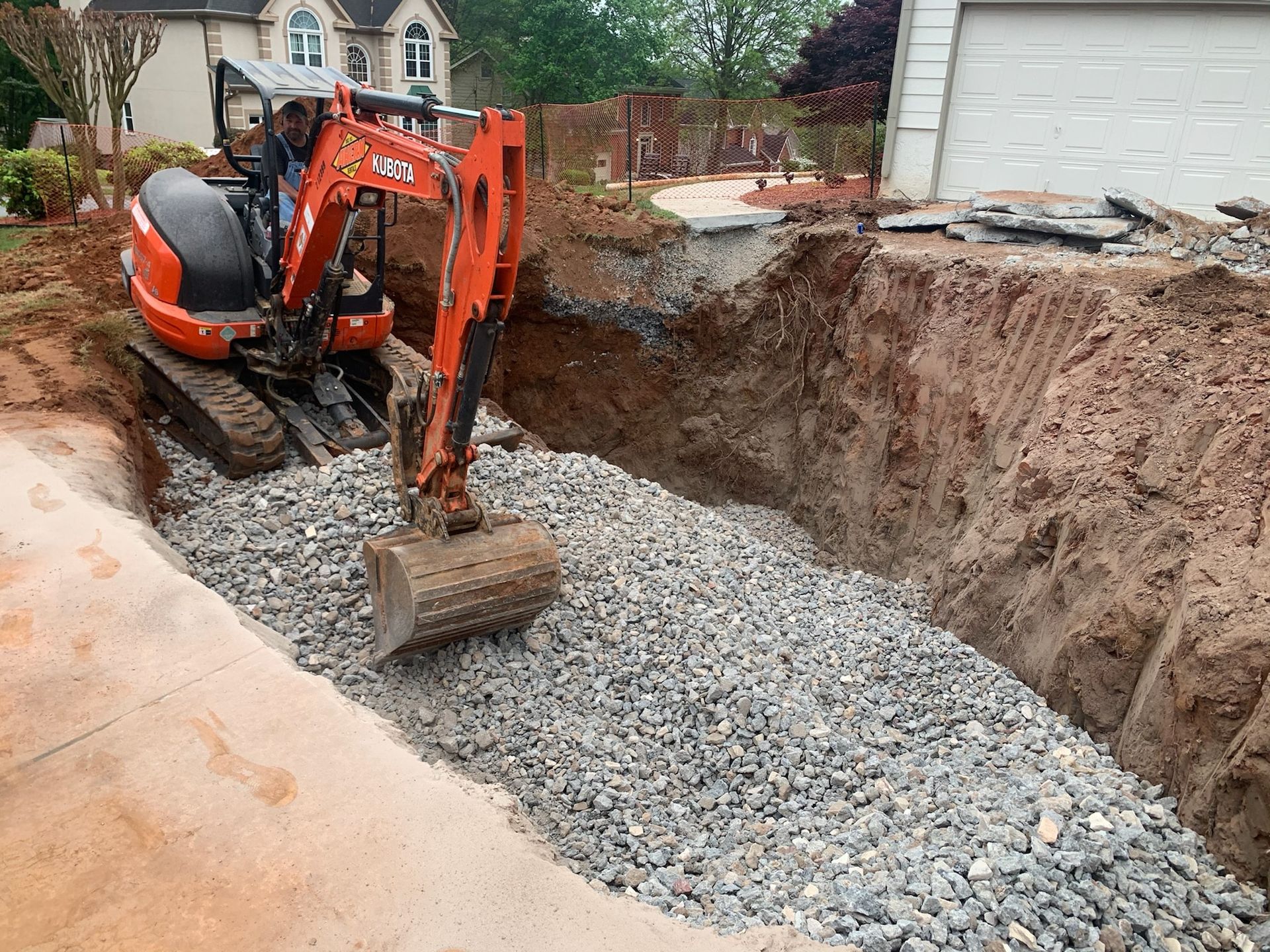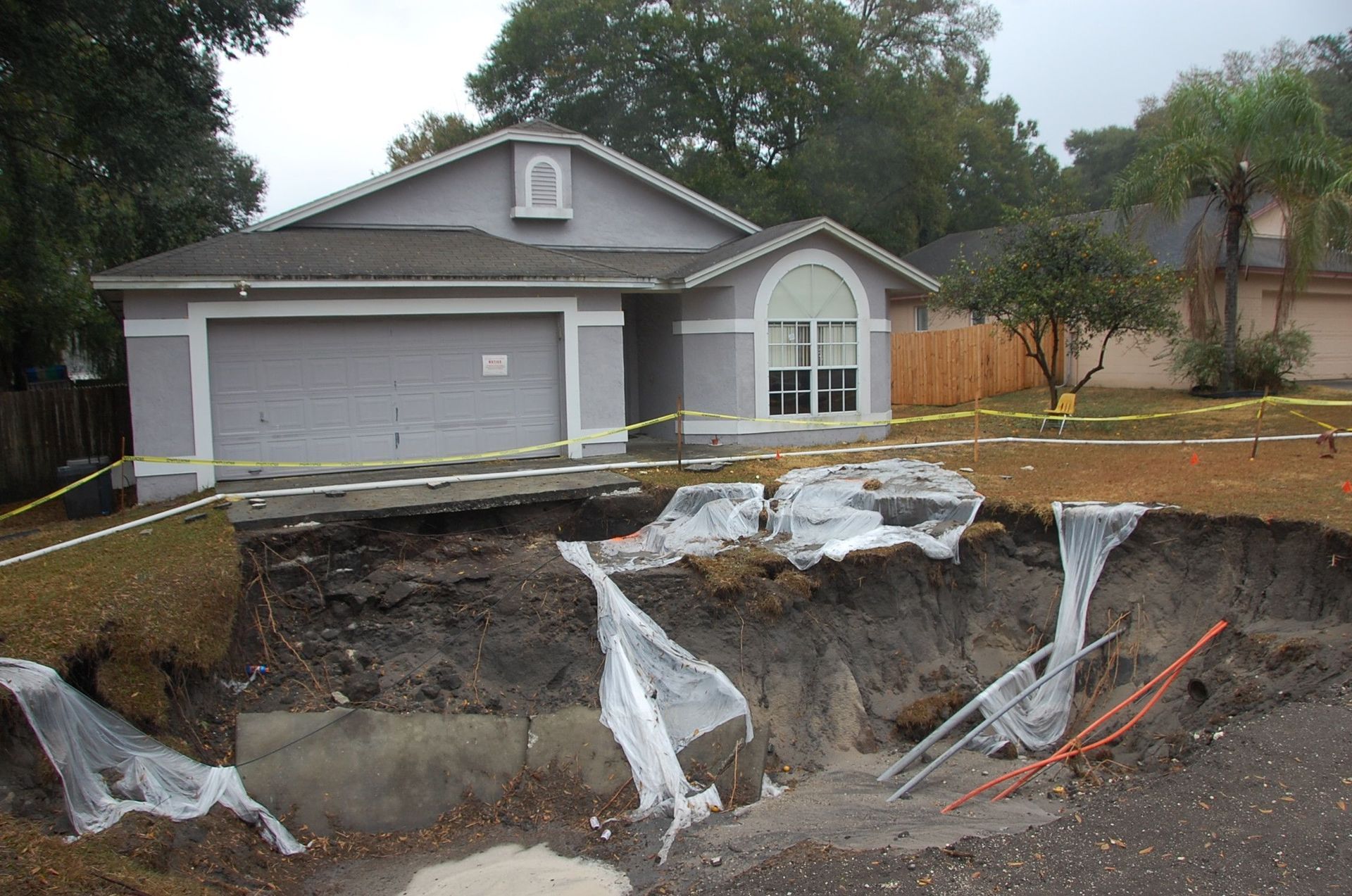How Long Does Sinkhole Repair Take in Atlanta GA? Complete Timeline Guide
You've just discovered a sinkhole on your Atlanta property, and now you're facing a whirlwind of concerns. Beyond the obvious worry about costs and safety, there's another pressing question keeping you up at night: how long will this take to fix? You might have vacation plans, upcoming family gatherings, or simply need your driveway accessible for daily life. The uncertainty about timeline can be just as stressful as the sinkhole itself, especially when you're trying to coordinate repairs with work schedules, weather windows, and other life obligations.
At Sinkhole Repair ATL, we understand that time is just as valuable as money when it comes to property repairs. As Atlanta's premier sinkhole repair specialists, we've completed hundreds of projects throughout metro Atlanta, from quick one-day fixes to comprehensive multi-week foundation stabilizations. Our experience has taught us that while every sinkhole is unique, homeowners deserve clear, honest timelines that help them plan their lives around necessary repairs. We pride ourselves on not just meeting deadlines but on providing realistic expectations from day one.
This comprehensive guide will walk you through everything you need to know about sinkhole repair timelines in Atlanta. You'll learn about typical repair durations for different types of sinkholes, factors that can speed up or slow down the process, and how Atlanta's unique weather patterns and soil conditions affect project schedules. We'll also share insider tips on how to expedite repairs without compromising quality, what to expect during each phase of the repair process, and how to minimize disruption to your daily routine while ensuring permanent, professional results.
1. Typical Sinkhole Repair Timelines in Atlanta
Small sinkhole repairs in Atlanta typically take 1 to 3 days from start to finish, assuming favorable weather conditions and no unexpected complications. These minor repairs involve sinkholes less than 10 feet in diameter and under 5 feet deep that haven't affected any structures. The process includes initial excavation, removal of loose material, installation of appropriate fill material in lifts, proper compaction between each layer, and surface restoration. For a typical small yard sinkhole, our crews can often complete the entire repair in a single day, though we recommend allowing 24-48 hours for materials to fully settle before heavy use of the area.
Medium-sized sinkhole repairs generally require 3 to 7 days of active work, though the total project timeline might span two weeks when including assessment, permitting, and curing time. These projects involve sinkholes between 10 and 25 feet in diameter or those affecting driveways, sidewalks, or pool decks. The extended timeline accounts for more complex excavation requirements, potential utility line considerations, specialized equipment setup, engineered fill material installation, and reconstruction of affected surfaces. If concrete work is involved, additional curing time of 7-14 days may be necessary before the area can bear full weight, though we can often provide temporary access solutions during this period.
Major sinkhole repairs involving foundation work or extensive soil stabilization typically take 2 to 6 weeks, with some complex projects extending to 8 weeks. These timelines include comprehensive soil testing and engineering assessments (3-5 days), permit acquisition from local authorities (5-10 days in Atlanta), mobilization of specialized equipment like drilling rigs or grouting pumps (1-2 days), the actual repair work including underpinning or deep injection (7-21 days), and final inspections and surface restoration (3-5 days). Foundation-related repairs often require a phased approach to maintain structural integrity throughout the process, which extends the timeline but ensures safety and effectiveness.
Emergency stabilization can begin within 2-4 hours of your call, with temporary measures implemented within 24 hours to prevent further damage. While emergency response addresses immediate safety concerns quickly, the complete repair following emergency stabilization typically follows standard timelines. At Sinkhole Repair ATL, we maintain emergency response capabilities 24/7, understanding that sinkholes don't wait for convenient timing. Our rapid response team can install temporary barriers, redirect water flow, shore up structures, and implement other critical measures while planning for permanent repairs.
2. Factors That Affect Repair Duration
Weather conditions significantly impact sinkhole repair timelines in Atlanta, where our humid subtropical climate creates unique challenges throughout the year. Heavy rain can delay projects by 2-5 days or more, as water-saturated soil becomes unstable and dangerous to work in. We cannot properly compact fill material when it's too wet, and attempting repairs during rain often leads to failure and rework. Atlanta's summer afternoon thunderstorms, common from June through September, require careful scheduling of critical work phases for morning hours. Winter conditions, while generally mild, can still cause delays when temperatures drop below 40°F, affecting concrete curing and compaction equipment operation.
The depth and underlying cause of your sinkhole dramatically influence repair duration. Shallow sinkholes caused by surface erosion might be fixed in hours, while deep sinkholes extending 20+ feet require days of careful filling and compaction. If your sinkhole resulted from a broken water or sewer line, add 2-5 days for plumbing repairs that must be completed before ground stabilization can begin. Natural geological sinkholes, particularly those in areas with limestone bedrock found in parts of North Atlanta, often require specialized grouting techniques that extend timelines by 1-2 weeks. Similarly, sinkholes caused by poor drainage need comprehensive water management solutions installed first, adding 3-7 days to the project.
Access and location constraints can add significant time to any repair project. Sinkholes in backyards with no equipment access might require hand-digging and wheelbarrow transport, tripling the time needed compared to areas accessible by machinery. Properties with mature landscaping, pools, or outbuildings that limit equipment placement can extend timelines by 25-50%. Urban locations in dense Atlanta neighborhoods may require special permits for street closures or equipment placement, adding 3-5 days to the project timeline. Additionally, repairs near utility lines require careful hand excavation and utility company coordination, potentially adding a week or more to the schedule.
Permit and inspection requirements vary significantly across metro Atlanta's numerous jurisdictions. City of Atlanta permits typically take 5-10 business days, while some suburban counties like Gwinnett or Cobb might process them in 3-5 days. Complex repairs requiring engineering reviews can extend permit timelines to 15-20 business days. Each jurisdiction has different inspection requirements—some require multiple inspections at various project stages, each potentially adding a day to the timeline. At Sinkhole Repair ATL, we maintain relationships with permitting offices throughout metro Atlanta and handle all paperwork to minimize delays, but these administrative requirements still impact overall project duration.
3. Seasonal Considerations for Atlanta Sinkhole Repairs
Spring in Atlanta (March through May) offers ideal conditions for sinkhole repair, with moderate temperatures and lower rainfall than summer months. This season typically allows for the fastest project completion times, with minimal weather-related delays. The soil has usually dried from winter rains but hasn't yet baked hard from summer heat, making excavation and compaction easier. Spring repairs often proceed 20-30% faster than those in other seasons. However, the occasional severe weather system can still cause delays, and the popularity of spring repairs means scheduling might require advance planning. Many homeowners choose spring for repairs to have everything completed before summer activities and vacation season.
Summer repairs (June through September) face unique challenges from Atlanta's intense heat and afternoon thunderstorms. Our crews start work at dawn to complete critical tasks before afternoon storms develop, typically working 6 AM to 2 PM during peak summer. The heat affects concrete curing rates and can make soil extremely hard and difficult to excavate. We add 15-20% to standard timelines during summer to account for weather delays and modified work schedules. However, longer daylight hours can sometimes offset these delays for projects not involving concrete work. Proper hydration and safety protocols for crews are essential during summer months, which may require more frequent breaks but ensures quality work.
Fall (October through November) provides another excellent window for sinkhole repairs in Atlanta, with comfortable temperatures and typically drier conditions. The soil remains workable, and the reduced rainfall compared to spring means fewer weather delays. Fall repairs often proceed smoothly, though shorter daylight hours can limit working time for complex projects. The main consideration is completing repairs before the holiday season and potential winter weather. Many property owners choose fall for repairs to address issues discovered during summer before they worsen over winter. Hurricane season occasionally brings tropical systems to Atlanta in early fall, which can cause significant delays if they coincide with your project.
Winter repairs (December through February) are entirely feasible in Atlanta but require additional considerations that can extend timelines by 20-40%. While our mild winters rarely see extended freezes, overnight temperatures below 40°F affect concrete curing and require heated enclosures or special additives, adding time and cost. Soil can become oversaturated from winter rains, making proper compaction challenging. Shorter daylight hours limit working time to roughly 8 AM to 5 PM. However, winter repairs have advantages: less competition for scheduling, potential off-season pricing, and addressing problems before spring rains exacerbate them. We use specialized cold-weather techniques to ensure quality isn't compromised by temperature.
4. The Step-by-Step Repair Process Timeline
Initial assessment and consultation typically occur within 24-48 hours of your first call, with our team spending 1-2 hours thoroughly evaluating your property. During this visit, we perform visual inspection of the sinkhole and surrounding area, take measurements and photographs for documentation, conduct preliminary soil stability tests, check for utility line involvement, and assess potential structural impacts. We then provide you with a detailed repair plan and timeline estimate on-site or within 24 hours. This initial phase is crucial for accurate timeline projections and ensures no surprises once work begins. For complex situations, we may recommend additional testing that could extend this phase by 2-3 days but ultimately saves time by preventing mid-project complications.
The preparation and mobilization phase spans 2-5 days and includes securing necessary permits, scheduling utility locates through Georgia 811, ordering specialized materials, and coordinating equipment delivery. During this time, we also establish site access routes, set up safety barriers, protect existing landscaping and structures, and notify neighbors if necessary. For emergency situations, we can compress this timeline to hours, though non-emergency repairs benefit from proper preparation. This phase might seem inactive to homeowners, but it's essential for ensuring the actual repair proceeds smoothly without delays. We maintain constant communication during this period, updating you on permit status and confirming the start date.
Active repair work varies dramatically based on the sinkhole type but follows a predictable sequence. Day 1 typically involves equipment setup and initial excavation. Days 2-3 focus on removing unstable material and addressing underlying causes like pipe repairs. Days 4-5 include installing drainage improvements if needed and beginning fill placement. Subsequent days involve continued filling in measured lifts with proper compaction between each layer. For simple repairs, this phase might complete in a single day. Complex repairs might extend to several weeks with periodic work as materials settle and cure. We provide daily updates during active work, explaining what was accomplished and what comes next.
The completion and restoration phase requires 2-5 days and includes final grading and compaction, surface restoration (sod, concrete, asphalt), irrigation system repairs if applicable, final inspections, and cleanup. If concrete or asphalt surfaces are involved, additional curing time of 7-28 days may be necessary before full use, though we can often provide temporary solutions. This phase also includes providing you with all documentation, warranty information, and maintenance recommendations. While the sinkhole itself might be repaired earlier, we consider the job incomplete until your property is fully restored. Our attention to detail during this final phase ensures your property looks as good as—or better than—before the sinkhole appeared.
5. How to Speed Up Your Sinkhole Repair
Early detection and immediate action can reduce repair timelines by 30-50% while preventing escalation to more complex problems. The moment you notice warning signs like depressions, cracks, or doors that won't close properly, call for an assessment. Waiting even a few weeks can allow water infiltration that turns a 3-day repair into a 2-week project. Document the sinkhole's progression with daily photos, mark the edges with spray paint to track growth, and keep the area dry by tarping if possible. These simple steps prevent deterioration while you await professional help and can significantly reduce the work required once repairs begin.
Having your property information ready streamlines the assessment and permitting process, potentially saving 3-5 days. Gather your property survey, any previous geotechnical reports, records of past repairs or construction work, utility bills showing service locations, and insurance policy information. If you've had previous drainage or foundation work done, those records are invaluable. Mark any known utility lines, septic systems, or irrigation lines with flags or spray paint. This preparation allows our team to immediately understand your property's unique characteristics and develop an accurate repair plan without delays for research or utility location.
Choosing the right season and being flexible with scheduling can significantly reduce your wait time and project duration. While we maintain year-round capability, scheduling repairs during our slower winter months often means faster project starts and dedicated crew attention. If you can be flexible within a 2-week window, we can often fit your project between others or take advantage of optimal weather conditions. Consider bundling multiple repairs—if you have drainage issues along with a sinkhole, addressing both simultaneously is more efficient than separate projects. Being available for quick decisions during the project prevents delays waiting for approvals on minor plan adjustments.
Clear site access and preparation can reduce project time by 20-30% and minimize property disruption. Before work begins, clear vehicles from the driveway, move outdoor furniture and decorations, trim back vegetation near the work area, and secure pets indoors or away from the site. If you have automatic irrigation, turn it off and mark sprinkler heads. Remove or protect valuable plants you want saved. The easier our crews can access and work in the area, the faster repairs proceed. Some homeowners even remove fence sections to allow equipment access, eliminating the need for time-consuming hand labor. These preparations might take you a few hours but can save days of project time.
Atlanta's Infrastructure and Your Repair Timeline
Atlanta's aging infrastructure significantly impacts sinkhole repair timelines throughout different neighborhoods and districts. The city's older areas, particularly those developed before 1960, often have clay sewer pipes and cast iron water lines that are reaching the end of their service life. When these fail, they create sinkholes that require coordination with Atlanta Watershed Management, potentially adding 1-2 weeks to repair timelines. The historic neighborhoods around Virginia-Highland and Grant Park face particular challenges with century-old utility lines that require careful excavation and often trigger historical preservation reviews.
The ongoing development and construction boom throughout metro Atlanta affects repair timelines in unexpected ways. Areas near major projects like those along the Atlanta BeltLine may experience permitting delays due to coordination requirements with multiple agencies. Construction vibration from nearby development can destabilize soil during repairs, requiring additional stabilization time. However, the city's investment in infrastructure improvements, particularly in rapidly growing areas like Brookhaven and Chamblee , has led to streamlined permitting processes that can actually reduce timeline in these jurisdictions by 2-3 days compared to historical averages.
Traffic patterns and urban density in Atlanta create unique scheduling challenges that affect repair timelines. Working in high-traffic areas like Buckhead or Midtown requires lane closure permits and often restricts work to off-peak hours (9 AM to 3 PM or overnight), extending project duration by 40-50%. The city's notorious traffic also affects material delivery and crew arrival times, which we factor into all project schedules. Properties near MARTA stations or major thoroughfares may require additional safety measures and coordination with transportation authorities. We've developed strategies specific to Atlanta's traffic patterns, including staging materials during off-hours and utilizing smaller equipment that's easier to maneuver in congested areas, helping minimize these timeline impacts.
Get Your Sinkhole Repaired on Your Schedule
Understanding sinkhole repair timelines helps you plan effectively and set realistic expectations for your property restoration. While small sinkholes might be fixed in a day and major foundation-threatening issues could take several weeks, most residential sinkhole repairs in Atlanta complete within 3-10 days of active work. The key to minimizing timeline and disruption is early detection, professional assessment, and working with experienced local contractors who understand Atlanta's unique challenges. Remember, the time invested in proper repair pays dividends in permanent solutions that protect your property value and family safety.
At Sinkhole Repair ATL, we respect your time as much as we value quality workmanship. Our experienced teams have refined our processes through hundreds of successful projects, allowing us to provide accurate timeline estimates and reliable completion dates. We understand that living with a sinkhole—even temporarily—creates stress and uncertainty. That's why we commit to clear communication, efficient work practices, and doing everything possible to complete your repair quickly without compromising on quality or safety.
Don't let timeline concerns delay necessary sinkhole repairs. Call Sinkhole Repair ATL today at 844-308-1192 for a free assessment and detailed timeline estimate specific to your situation. Our team will evaluate your property, explain exactly how long repairs will take, and work with your schedule to minimize disruption to your daily life. Visit our foundation repair services page to learn about our comprehensive solutions, or check out our blog for more helpful information about sinkhole prevention and repair. Every day you wait, your sinkhole could be growing—take action today and get back to enjoying your property worry-free.
